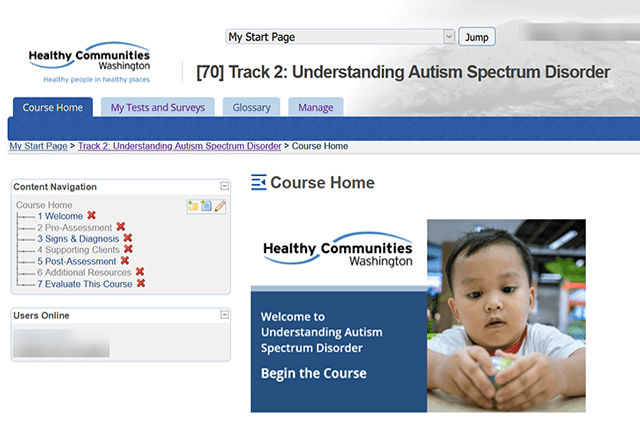When you’re thinking about creating a course, you need to think about who your target audience is. Despite being in the US, you may have a diverse staff who would benefit from you offering an online training program in multiple languages. This is especially the case when the course content includes topics like health literacy and others that could cause trouble if translated incorrectly.
Spanish is the biggest non-English language spoken in this country, and having courses available to this huge swath of the population is important if your team works in diverse communities.
In this article, we’re looking at the courses for health agencies that would best serve your learners if translated and localized.
Offering Courses in Spanish? Start With These Areas
Interpersonal and Relationship-building Skills
Above all else, you’ll want your staff to conduct themselves professionally and have successful working relationships with those around them.
Offering an interpersonal and relationship-building course in Spanish gives your health staff the tools to:
- Manage conflict by using de-escalation techniques.
- Work as part of a team and collaborate with other team members.
- Build rapport with coworkers and clients.
Help them achieve this by providing interpersonal and relationship-building training in their native language.
Cultural Competency
The gaps in healthcare for marginalized communities are largely due to implicit bias and systemic issues. But unfortunately, these gaps mean that many populations disproportionately suffer from chronic illnesses and health problems.
Any health team working with diverse communities needs cultural competency training. Cultural competency is an essential element in addressing these care gaps. In practice, cultural competence means that your team considers the patients’ cultural beliefs, behaviors and needs when addressing them. This enables them to help the community access life-saving care.
Frontline health workers like community health workers have better outcomes when they belong to the populations they serve because they understand the context and background of the community better than an outsider would. Offer a cultural competency course in Spanish to help your staff connect with immigrant populations and marginalized communities.
Diversity & Inclusion
There’s been a big push in recent years towards diversity and inclusion, often abbreviated as D&I. Diversity and inclusion training showcases the advantages of embracing people from different cultural backgrounds, belief systems, races, and genders into both learning and professional environments.
D&I training helps learners develop a thorough understanding of diversity. Aspects like the notions of ability and disability, religious beliefs, and the differences in access to resources due to gender, race, ethnicity, and socio-economic backgrounds.
Health literacy
Anyone working in a health agency must have a basic understanding of health literacy. Client-facing roles, such as frontline health workers, need to be able to translate complex medical concepts into simpler terms for patients to understand.
A mistranslated treatment plan can be deadly. If you work with immigrant communities, taking a health literacy course in Spanish can significantly benefit clients, who will gain the tools to manage their conditions and improve their health outcomes.
Ethics and Compliance Training
Ethics and compliance training is designed to provide employees with the knowledge, skills and tools they need to be successful in their roles. It covers legal issues such as fraud, bribery and corruption; privacy; intellectual property rights; employment laws; sexual harassment and discrimination.
Internal codes of conduct, ethics, state laws, and institutional guidelines should be as accessible as possible to the entire staff. So consider offering these foundational courses in Spanish to ensure that your staff understands the concepts and can apply them.
Team Building and Leadership Training
Teams that work well together are more productive and generate better outcomes for the agency and clients alike. Likewise, offering leadership training allows your supervisors to thrive on the job.
However, you likely know that leadership positions are rarely filled by minorities. Providing leadership training in Spanish and other languages is a powerful way to empower your employees to step up.
Evaluation and Research
Evaluation and research skills may seem obvious to many. But many times, employees don’t know how to conduct proper research or evaluate issues, especially if they didn’t have a traditional education.
Evaluation and research training includes identifying issues and their underlying causes, conducting evaluation projects, collecting data, and compiling results in a way that can drive change in the organization. Offer this course in Spanish to make it easier for immigrants to acquire these skills and forge a career.
Offering Course Materials in Spanish Increases Engagement and Improves Your Staff’s Learning Outcomes
At Talance, we work to make online education accessible for organizations like yours. Contact us if you want to develop and translate an online training program into Spanish. Our team is ready to help.
Online Learning: Beginner’s Guide for Health Agencies
Your Online Learning: Beginner’s Guide for Health Agencies includes everything you’ll need to launch a successful online learning program for your staff.



